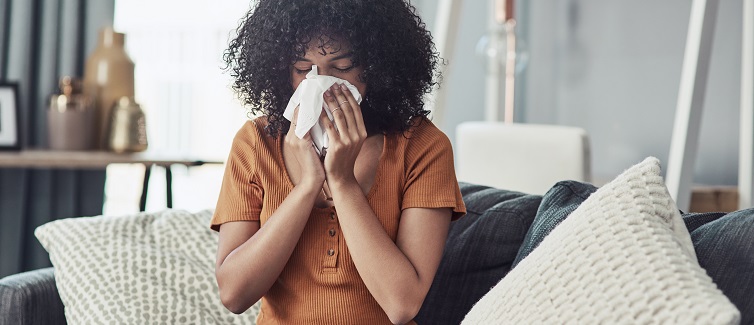Updated June 8, 2021
You may notice that you cough or sneeze more at certain times of the year. Maybe your nose gets stuffy or runny in the spring and summer.
If that’s the case, there may be a simple explanation. You could be suffering from seasonal allergies.
Although the symptoms can be a nuisance, there are ways you can find relief.
What Are Seasonal Allergies?
Seasonal allergies are also known as “hay fever” or “allergic rhinitis.” More than 19 million American adults and more than 5 million children suffer from seasonal allergies, according to the Centers for Disease Control and Prevention (CDC).
Seasonal allergies commonly occur as a reaction to pollen in the outdoor air. Trees, mold spores, and grasses/weeds can create pollen, which is a powdery substance.
Your immune system may overreact to pollen, causing seasonal allergies.
Seasonal allergies most commonly occur in the spring, summer, and early fall. But factors like the weather can cause pollination to begin sooner or end later, extending allergy season.
Seasonal Allergy Symptoms
People with seasonal allergies may experience many different symptoms. The symptoms may be similar to a cold, but they generally last longer than one or two weeks.
Common symptoms include:
- Sneezing
- Stuffy or runny nose
- Itchy or red eyes and/or throat
- Sore throat
- Loss of taste
- Mucus accumulation in back of nose/throat
- Congestion or popping of the ears
- Mouth breathing during sleep or trouble sleeping that causes fatigue during the day
The severity of symptoms may depend on the person, the time of the year, and pollen levels.
Seasonal Allergy Treatment Options
Although seasonal allergies can be difficult, there are many different ways you can lessen your symptoms.
- Avoid going outside: Monitor pollen and mold counts in the weather forecast. Try to stay inside on days with higher counts. Warm and windy days tend to have higher pollen counts. In spring/early summer, pollen counts are higher in the evening. In late summer/early fall, pollen counts are higher in the morning.
- Keep windows and doors closed: Make sure the windows and doors of your house and car are closed, especially during peak pollen times.
- Wear a mask: If you’re outside and are worried about pollen, wearing a mask can help protect your nose and mouth.
- Wear a hat and/or sunglasses when outside: This can keep pollen out of your hair and eyes.
- Clean up: Wash your hands, take a shower, wash your hair, and/or change clothes after being outside.
Certain types of medications also can relieve symptoms from seasonal allergies. Many of those drugs are available over the counter.
- Corticosteroid nasal sprays: These are often the first medicine for seasonal allergies. They can reduce inflammation in your nose and relieve all different seasonal allergy symptoms. They also don’t have many side effects.
- Antihistamines: These can relieve symptoms like sneezing, runny nose, stuffiness, and itching in your nose and eyes. There are different antihistamines, which can come as a pill, liquid, or nasal spray.
- Decongestants: Decongestants can help relieve a stuffy nose. There are different types of decongestants, including pills, liquids, nasal sprays, and nose drops. You shouldn’t use decongestant sprays and drops for longer than a few days. Using them long-term could cause more permanent congestion.
- Allergy shots (immunotherapy): If over-the-counter medicines don’t solve your allergies, your doctor may recommend allergy shots. The shots expose you to gradually increasing amounts of your allergens over an extended period of time. Over time, your immune system will be less likely to overreact when it is exposed to pollen or other allergens.
If seasonal allergies are causing you problems, talk to your doctor for advice on treatment.
The UPMC Sino-Nasal Disorders and Allergy Center can treat a wide variety of conditions, including seasonal allergies. For more information or to schedule an appointment, contact one of our several locations.
